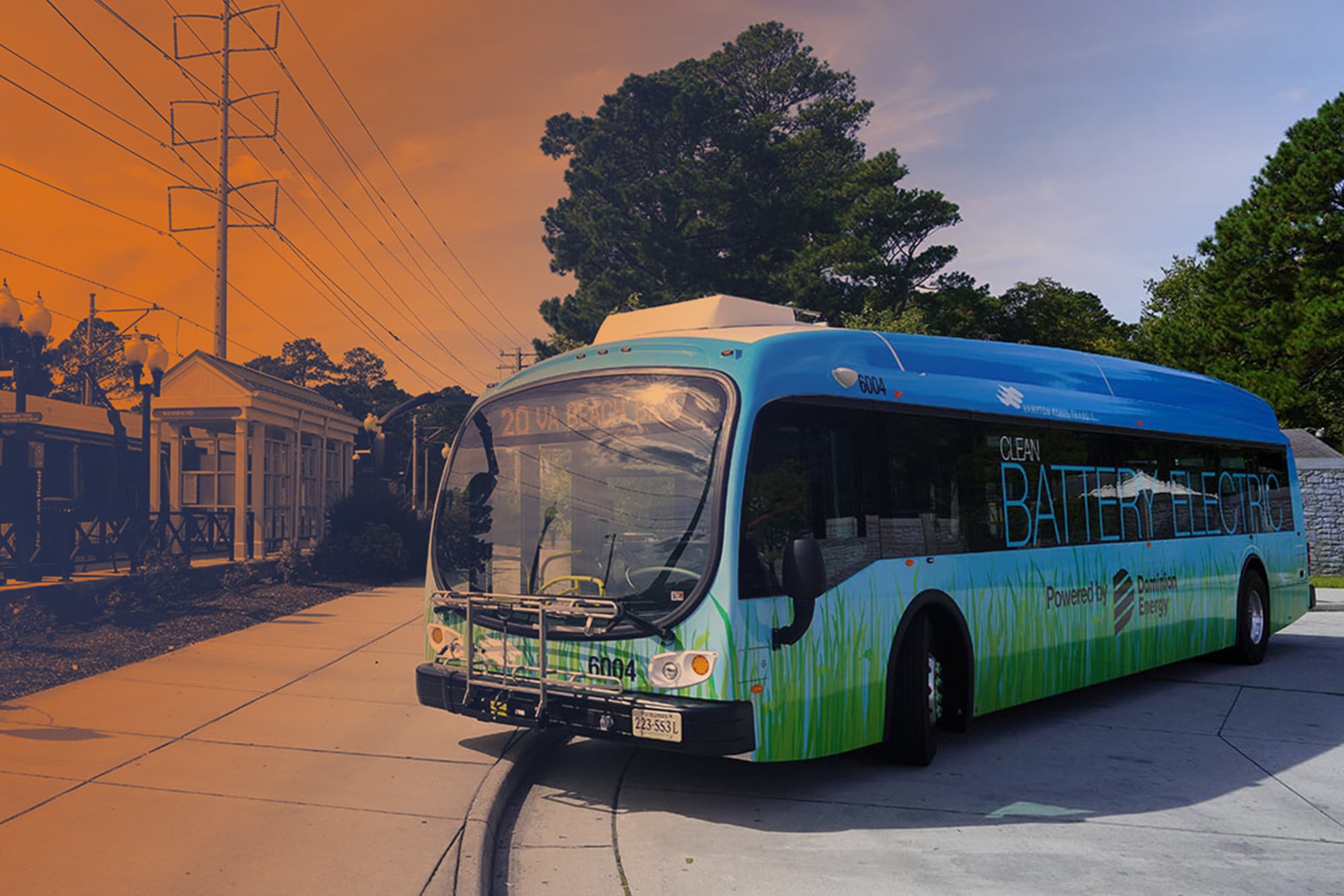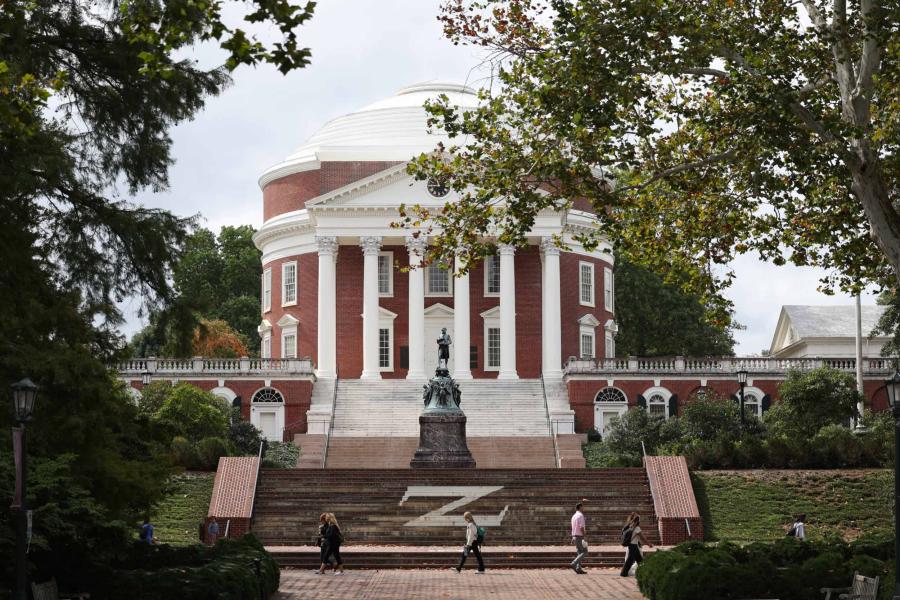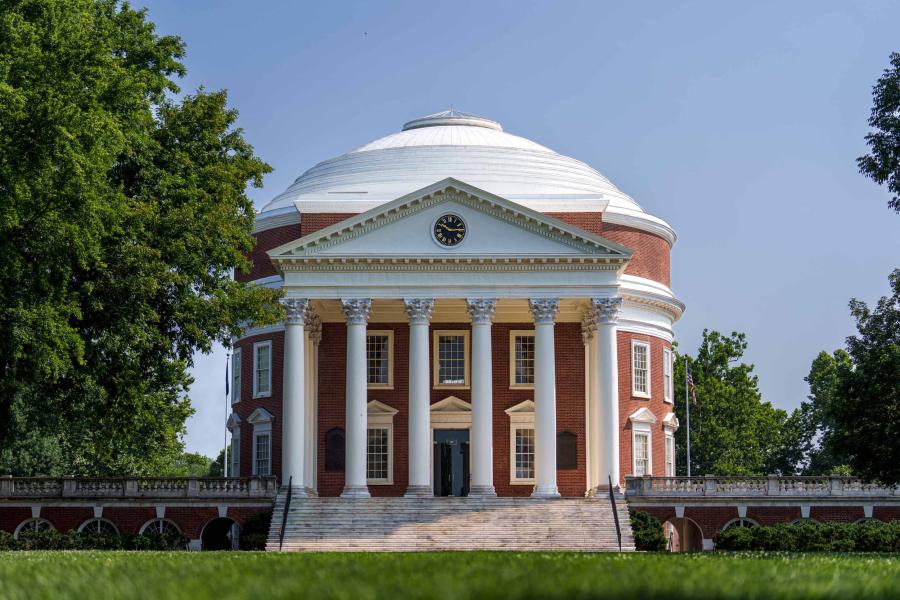The University of Virginia announced today that it is beginning to transition its transit fleet from diesel power to a more sustainable alternative with the purchase of four new battery electric buses. Delivery of the new zero-emission buses, manufactured by Proterra, is expected in summer or fall 2023.
University Transit Service, operated by UVA’s Department of Parking and Transportation, currently has about 40 buses in its fleet. Parking and Transportation staff began in-depth research of electric buses in fall 2020. With a life cycle of 12 to 15 years for each bus, the team understood that every future bus purchase would present an opportunity to advance the goals of the University’s Sustainability Plan.
UVA’s Facilities Management department has led the way for electric vehicles on Grounds. Since 2019, it has been designated with a Sustainable Fleet Accreditation by the National Association of Fleet Administrators and Calstart, becoming the only university fleet in Virginia to earn this designation and one of only six in the nation.
“We’re excited to introduce battery electric buses to our University Transit fleet,” Executive Vice President and Chief Operating Officer Jennifer “J.J.” Wagner Davis said. “The decisions we make each day are important to help us achieve long-term sustainability goals. I’m grateful to the University’s Committee on Sustainability for its forward-thinking approach and to the Parking and Transportation team for their enthusiastic partnership.”
Each UTS bus uses about 10,000 gallons of diesel fuel each year. By replacing four diesel buses with battery electric buses, UTS will cut its tailpipe emissions by about 400 metric tons annually. This is roughly equivalent to the annual emissions of 50 average homes.
“We are thrilled to announce this step to help the University reach its goal of being fossil fuel-free by 2050,” Director of Parking and Transportation Rebecca White said. “Transportation presents a major environmental and health impact, and converting our bus fleet from diesel to battery electric vehicles will be a major step forward. A big thanks goes to everyone on the Parking and Transportation team whose hard work and creative problem-solving have brought us to this point.”
The team consulted with other universities and municipalities that are running battery electric buses to learn about their experiences before deciding to order UVA’s first four battery electric buses from Proterra. The publicly listed company is currently based in California, but its electric buses are already on the road here in Virginia. UVA staff saw them up close in Alexandria, and talked with transit colleagues there about the day-to-day operations of their battery electric buses.
Operating the 35-foot buses will require retrofitting P&T’s headquarters on Millmont Street to include three new large-scale charging stations. Each station can charge two buses at a time, but buses can get back on the road quicker if charged independently. A single bus can be fully charged in four hours, while charging two buses at one station will take about seven hours.
Operating factors such as distance, average speed, elevation changes, regenerative braking, and heating and cooling needs all affect how many hours each bus can go between charges. UTS operations will be adjusted to meet the needs of riders while allowing for midday charges.
“This is a significant milestone in the University’s journey to implement sustainable practices across our operations,” Senior Vice President for Operations and State Government Relations Colette Sheehy said. “I’m grateful to Becca White and the entire P&T team for their commitment to helping the University achieve its sustainability goals while continuing to meet the transportation needs of students, faculty, staff and UVA Health team members. I look forward to seeing the new battery electric buses in action on Grounds next year.”
More information about the battery electric buses is available on the Parking and Transportation website.
Media Contact
Article Information
July 8, 2025






